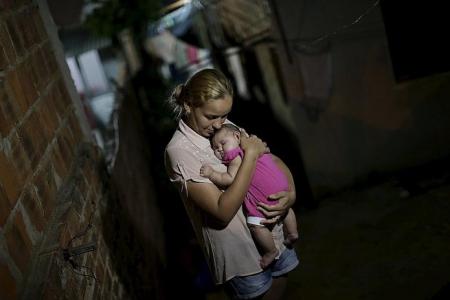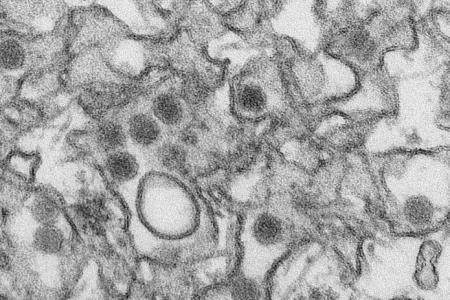Latin America's Zika scare
Virus has been blamed for surge of babies born with brain damage
Sitting in a plastic chair, Ms Yolanda Tobar is waiting for her prenatal check-up in a Guatemalan hospital.
What should have been a routine procedure has turned frightening because of Zika.
The 19-year-old, who is eight months pregnant with her first child, waits alongside other pregnant women facing the same fears over an outbreak of the tropical virus blamed for a surge in brain-damaged babies in Latin America.
Zika, a mosquito-borne virus that originated in Africa and arrived in Latin America last year, causes relatively mild, flu-like symptoms.
But for expecting couples, the threat is harrowing: Health officials in the region said the outbreak is linked to a surge in babies born with microcephaly, or abnormally small heads, a birth defect that can cause brain damage or death.
"The truth is that, yes, it worries me to know that the baby could be deformed," said Ms Tobar, admitting that she knew little about the disease, its symptoms and the possible complications for newborns.
Guatemala had registered 68 cases of Zika at the end of last month. But there are fears that the number could increase dramatically.
Neighbouring El Salvador has detected 5,397 cases of Zika and has urged women to avoid getting pregnant for the next two years.
Guatemala's geography makes it highly vulnerable, said health officials.

Its humid lowlands are prime breeding grounds for the mosquito species that carries Zika, Aedes aegypti. The mosquito's habitat spans most of the Americas.
On Thursday, the World Health Organization (WHO) said it expects three to four million cases of the Zika virus in the Americas.
It has also warned that every country in the hemisphere is at risk except Canada and Chile.
Currently, the virus has been reported in around 20 Latin American and Caribbean countries.
'SPREADING EXPLOSIVELY'
The WHO cautions that Zika has not been conclusively proven to cause microcephaly.
But WHO chief Margaret Chan said on Thursday that the virus is "spreading explosively".
"The level of alarm is extremely high," Ms Chan told a meeting of WHO member states in Geneva, calling for a Feb 1 meeting to determine if the outbreak qualifies as an international public health emergency.
Zika has hit hardest in Brazil. Cases of microcephaly in the giant South American country surged from 163 per year on average to 3,893 after the Zika outbreak began last year. Forty-nine of those babies have died.
There is no vaccine or specific treatment for Zika. Most patients simply treat the symptoms with painkillers and other medication.
Guatemalan officials have gone on the offensive, preparing for the worst.
At the public hospital AFP visited, epidemiologist Karen Giron said any patient diagnosed with Zika would be isolated for five days to prevent transmission.
Any pregnant woman running a fever will be considered a suspected Zika case and all women at prenatal clinics will undergo extra testing for birth defects in their babies.
Authorities are also stepping up measures to fight the mosquito population and warning people to take extreme precaution to avoid bites.
"If we comply with preventive strategies and measures, the virus will be controlled," said Rene Marroquin, head of obstetrics and gynaecology clinics for national health service IGSS.
Still, there was no information on Zika posted on the walls of the Guatemala City hospital, despite a national alert to prenatal clinics issued by health authorities. Some women said they had not even heard of Zika.
"I haven't heard anything about it. I don't know what it is," said one.
"The truth is that, yes, it worries me to know that the baby could be deformed."
- Guatemalan mother-to-be Yolanda Tobar
Get The New Paper on your phone with the free TNP app. Download from the Apple App Store or Google Play Store now






